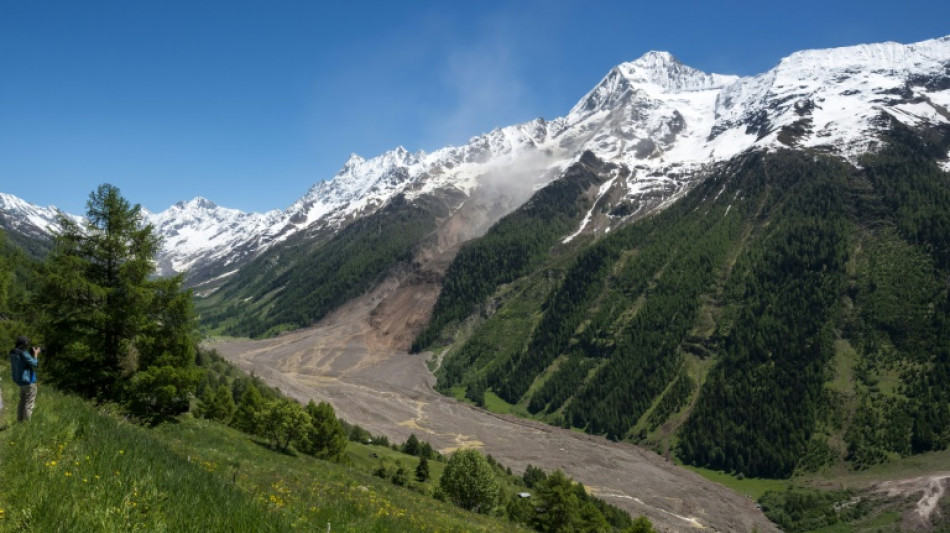
-
 New probe opens into Hunter S. Thompson's 2005 death
New probe opens into Hunter S. Thompson's 2005 death
-
Renowned British chimpanzee expert Jane Goodall dies at 91
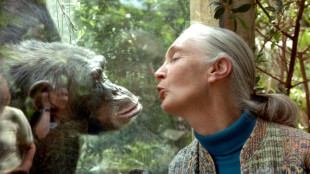
-
 Gordon penalties lead Newcastle to big win over Union SG
Gordon penalties lead Newcastle to big win over Union SG
-
Jane Goodall: crusader for chimpanzees and the planet
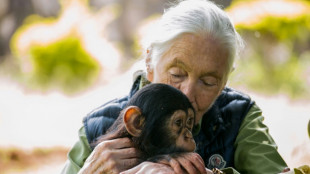
-
 Thuram set to miss France's World Cup qualifiers with hamstring knock
Thuram set to miss France's World Cup qualifiers with hamstring knock
-
W.House says firings 'imminent' as plan to reopen govt collapses
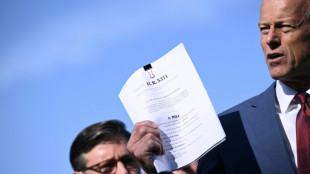
-
 Jane Fonda relaunches Cold War-era Hollywood free speech movement
Jane Fonda relaunches Cold War-era Hollywood free speech movement
-
Hurricane Imelda bound for Bermuda as a Cat 2 storm
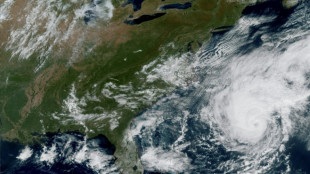
-
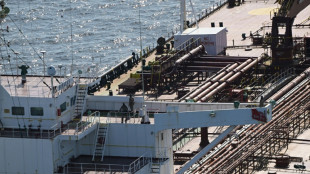 French navy boards Russia 'shadow fleet' ship: AFP
French navy boards Russia 'shadow fleet' ship: AFP
-
Canada blocks theme park from sending whales to China
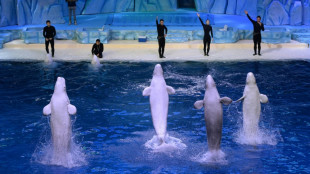
-
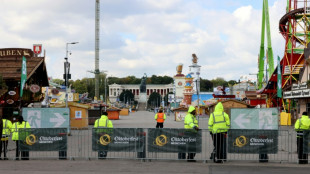 Deadly family drama shuts Oktoberfest for a day
Deadly family drama shuts Oktoberfest for a day
-
Senate rejects plan to end US government shutdown
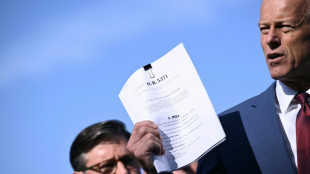
-
 Troll-in-chief Trump mocks Democrats over shutdown
Troll-in-chief Trump mocks Democrats over shutdown
-
Supreme Court blocks Trump from immediately firing Fed Gov. Cook
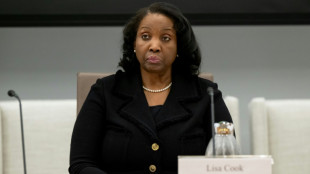
-
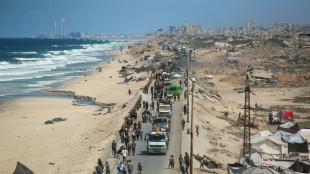 Israel issues 'last' warning for Gazans to flee main city
Israel issues 'last' warning for Gazans to flee main city
-
Jonathan Anderson brings new twist to Dior women with Paris debut

-
 India 'welcome' to collect trophy from me, says Asian cricket boss
India 'welcome' to collect trophy from me, says Asian cricket boss
-
Schwarzenegger's 'action hero' pope says don't give up on climate change

-
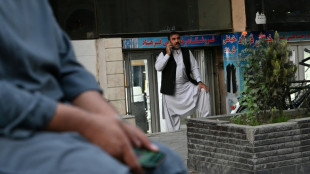 'I'm breathing again': Afghans relieved after internet restored
'I'm breathing again': Afghans relieved after internet restored
-
Shein picks France for its first permanent stores

-
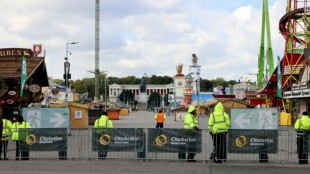 Deadly family drama in Munich briefly shuts Oktoberfest
Deadly family drama in Munich briefly shuts Oktoberfest
-
Japanese trainer Saito hopes for better Arc experience second time round

-
 'Normal' Sinner romps to 21st title but Swiatek stunned in Beijing
'Normal' Sinner romps to 21st title but Swiatek stunned in Beijing
-
Stella McCartney takes on 'barbaric' feather industry

-
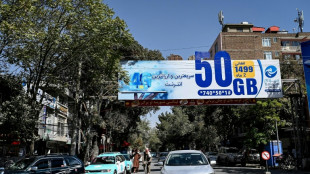 Mobile and internet restored across Afghanistan: AFP journalists
Mobile and internet restored across Afghanistan: AFP journalists
-
Wall Street stocks slide as US shutdown begins
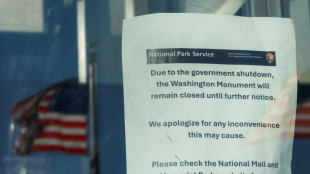
-
 US senators struggle for off-ramp as shutdown kicks in
US senators struggle for off-ramp as shutdown kicks in
-
Oktoberfest briefly closed by bomb threat, deadly family drama
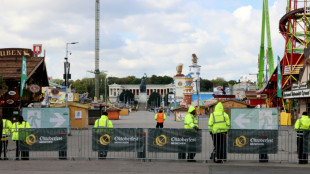
-
 Swiatek out with a whimper as Navarro stuns top seed in Beijing
Swiatek out with a whimper as Navarro stuns top seed in Beijing
-
Gaza aid flotilla defies Israeli 'intimidation tactics'

-
 Meta defends ads model in 550-mn-euro data protection trial
Meta defends ads model in 550-mn-euro data protection trial
-
Two pulled from Indonesia school collapse as rescuers race against time

-
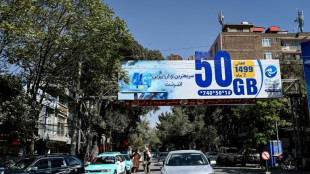 Mobile and data networks return across Afghanistan: AFP journalists
Mobile and data networks return across Afghanistan: AFP journalists
-
Denmark warns EU over Russia 'hybrid war' as leaders talk defence

-
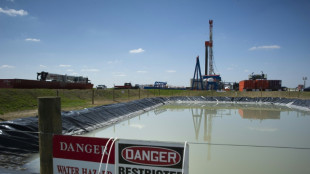 UK's Labour govt plans permanent fracking ban
UK's Labour govt plans permanent fracking ban
-
Russia says situation at Zaporizhzhia nuclear plant under control
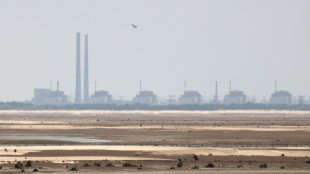
-
 YouTube, platforms not cooperating enough on EU content disputes: report
YouTube, platforms not cooperating enough on EU content disputes: report
-
EU eyes higher steel tariffs, taking page from US
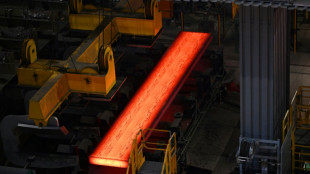
-
 Slot faces reality check at Liverpool as problems mount
Slot faces reality check at Liverpool as problems mount
-
European stocks rise, Wall St futures drop as US shutdown begins
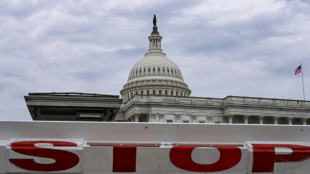
-
 Survivors still carry burden as Bali marks 2005 bombings
Survivors still carry burden as Bali marks 2005 bombings
-
Thousands protest in Greece over 13-hour workday plans

-
 Indigenous protest urges end to Colombia border violence
Indigenous protest urges end to Colombia border violence
-
Torrential downpours kill nine in Ukraine's Odesa
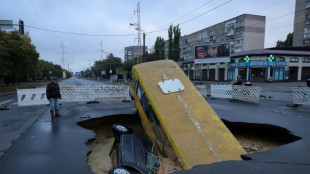
-
 Australia ease to six-wicket win in first New Zealand T20
Australia ease to six-wicket win in first New Zealand T20
-
France's Monfils announces retirement at end of 2026

-
 'Normal' Sinner thrashes Tien in Beijing for 21st title
'Normal' Sinner thrashes Tien in Beijing for 21st title
-
Survivor pulled from Indonesia school collapse as parents await news

-
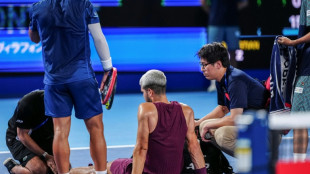 Tennis schedule under renewed scrutiny as injuries, criticism mount
Tennis schedule under renewed scrutiny as injuries, criticism mount
-
New player load guidelines hailed as 'landmark moment' for rugby

| CMSC | 0.89% | 23.9237 | $ | |
| SCS | -2.46% | 17.105 | $ | |
| NGG | 0.84% | 72.96 | $ | |
| RELX | -2.83% | 47.09 | $ | |
| GSK | 9.79% | 45.475 | $ | |
| RBGPF | 0% | 72.59 | $ | |
| BTI | -2.38% | 52.332 | $ | |
| BCC | 0.22% | 77.61 | $ | |
| RIO | 0.55% | 66.27 | $ | |
| RYCEF | 0.63% | 16 | $ | |
| CMSD | 1.48% | 24.391 | $ | |
| VOD | -0.69% | 11.52 | $ | |
| BP | 0.88% | 34.565 | $ | |
| BCE | 0.55% | 23.465 | $ | |
| JRI | 0.52% | 14.325 | $ | |
| AZN | 8.96% | 84.275 | $ |

How Switzerland's Birch glacier collapsed
A cascade of events in the Swiss Alps led to the dramatic collapse of the Birch glacier, wiping out Blatten village in the valley below, glaciologists and geoscientists told AFP on Friday.
Experts knew days ahead of Wednesday's landslide that the glacier was likely to suffer a catastrophic failure. But the reasons why date back much further.
There are strong theories on the causes, and to what degree the disaster is linked to climate change -- but these are yet to be confirmed by scientific analysis.
"This can be considered as a cascading event, because we have different processes involved," explained Christophe Lambiel, senior lecturer at the University of Lausanne's Institute of Earth Surface Dynamics.
- Mountain above the glacier -
The 3,342-metre (10,965-foot) high Kleines Nesthorn mountain above the glacier was already somewhat unstable, and rockfalls accelerated dramatically around 10 days beforehand.
Experts feared a total collapse within hours, but instead there were successive rockfalls over several days, which was actually the best-case scenario.
- Rockfall onto glacier -
Three million cubic metres of rock were deposited on the glacier.
"If you put a lot of weight on an unstable foundation, it can just slip away. And this is what actually happened," Matthias Huss, the director of Glacier Monitoring Switzerland (GLAMOS), told AFP.
"The glacier accelerated strongly in response to this additional loading, and then the disaster struck."
- The Birch glacier -
The Birch glacier was a special case: the only Swiss glacier that was advancing rather than shrinking. However, this was not because of extra snowfall.
Its advance "was quite likely due to the pre-loading with rockfalls from this mountain, which has finally collapsed. So the landslide didn't start from nothing," said Huss.
The glacier was on a steep slope, and even steeper at the front, worsening the dynamics.
Smaller-scale falls from the front of the glacier Tuesday were expected to continue, with Wednesday's sudden total collapse considered a less-probable scenario.
- How the glacier collapsed -
The rockfalls altered the stress equation between the weight of the glacier and the slope, which governs its forward speed, Lambiel told AFP.
Like pushing a car, it takes a lot of force to initiate movement, but less once it is on the move, he explained.
Huss said the 1,000 metres of elevation between the glacier and the Lotschental valley floor added a "huge amount of potential energy", which through friction melts part of the ice, making the fall "much more dynamic than if it was just rock".
- Role of melting permafrost -
Permafrost conditions are degrading throughout the Alps. Ice inside the cracks in the rocks has been thawing to ever-deeper levels over the last decade, especially after the summer 2022 heatwave.
"Ice is considered as the cement of the mountains. Decreasing the quality of the cement decreases the stability of the mountain," said Lambiel.
Huss added: "At the moment, we can't say it's because of permafrost thaw that this mountain collapsed -- but it is at least a very probable explanation, or one factor, that has triggered or accelerated this process of the mountain falling apart."
- Role of climate change -
Jakob Steiner, a geoscientist at the University of Graz in Austria, told AFP: "There is no clear evidence as of yet, for this specific case, that this was caused by climate change."
Huss said making such a direct link was "complicated".
"If it was just because of climate change that this mountain collapsed, all mountains in the Alps could collapse -- and they don't," he said.
"It's a combination of the long-term changes in the geology of the mountain.
"The failing of the glacier as such -- this is not related to climate change. It's more the permafrost processes, which are very complex, long-term changes."
Lambiel said of a link between climate change and the glacier moving forward over time: "Honestly, we don't know.
"But the increasing rockfalls on the glacier during the last 10 years -- this can be linked with climate change."
- Other glaciers -
Modern monitoring techniques detect acceleration in the ice with high precision -- and therefore allow for early warning.
Lambiel said around 80 glaciers in the same region of Switzerland were considered dangerous, and under monitoring.
"The big challenge is to recognise where to direct the detailed monitoring," said Huss.
Lambiel said sites with glacier-permafrost interactions above 3,000 metres would now need more research. But they are difficult to reach and monitor.
Steiner said: "Probably the rapidly changing permafrost can play some kind of role.
"This is concerning because this means that mountains are becoming a lot more unstable."
rjm-burs/phz/jhb
O.Schlaepfer--VB
